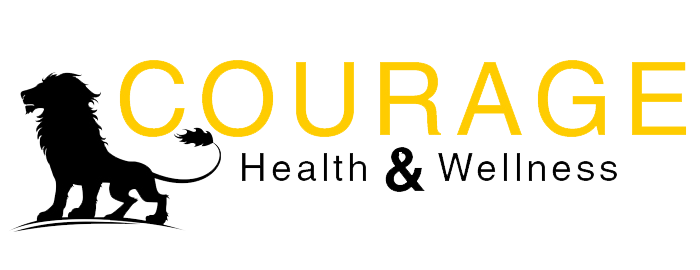Confiding in Others Improves Your Health, but How?

Confiding in Others Improves Your Health, but How?
On the psychology of sharing secrets.
Posted December 13, 2020 | By: Noam Shpancer, Ph.D.

A well-known maxim in the recovery community holds that “you’re only as sick as your secrets.” This is because we mostly keep secret those things about us that make us feel guilty or ashamed, and we keep those things secret for fear of social humiliation and rejection. This strategy, however, is often self-defeating since the act of concealment makes us feel dishonest, burdened, detached, and fearful of being discovered. Such fear and isolation beget further emotional turmoil.
Confiding in supportive, compassionate others, on the other hand, can strengthen our social bonds, refute our rejection fears, align our behavior with our authentic experience, and provide emotional relief—all predictors of robust mental health.
In a classic early study of this issue, James Pennebaker and Robin O’Heeron (1984) surveyed spouses of suicide and accidental death victims about their health and coping strategies approximately one year after their spouse’s death. They found that participants who discussed their spouse’s death with others were less likely to ruminate about the death or to suffer health problems. Interestingly, these effects were independent of participants’ self-reported number of close friends.
A vast psychological research literature has since accumulated to show that, in general, confiding in others predicts improved health, while secrecy and withholding are linked to poorer mental health and behavioral outcomes.
This conclusion seems straight forward and rather intuitive, yet human affairs are complex, and several concerns regarding confiding deserve elaboration.
First, with confiding as with most human behaviors, context matters. Disclosing secrets to the wrong person at the wrong time can be damaging to the confider. Confiding in someone can also be a form of aggression, as the great Alfred Adler has noted, used to attack another (“I’m sorry I slept with your sister”).
With confiding as with most human behaviors, dose matters. Extreme light is as blinding as pitch darkness. Both confiding and withholding can be overdone to potentially destructive effects.
Research has shown that we do not confide in others at random. Rather, we are motivated by various considerations regarding the risk-reward ratio of confiding. For example, people are more likely to confide if they feel it will provide an emotional release (catharsis) or that the target has a right to know, or when others pressure them to confide. People confide more in others who are compassionate and assertive (and less in those who are enthusiastic and polite). One may assume that confiding happens mostly with those who are closest to us, but research has shown that we’re often more comfortable confiding in strangers or casual acquaintances.
Interestingly, research has also shown that confiding or disclosing stressful secrets in ways that circumvent the risk of social rejection (e.g., writing or speaking into a tape recorder) is similarly linked to better mental health outcomes and subjective well-being, which may explain the enduring popularity of diaries and private journals.
Second, finding an association between confiding in others and better mental health does not in itself settle the question of causality. Correlation does not imply causation. Those who confide more may possess other qualities that predispose them to both confide and cope better or vice versa. For example, the temperamental trait of behavioral inhibition has been shown to predict both low levels of confiding and poor health outcomes, and may thus account for the association between them.
Causality is important to establish because it points the way to effective intervention. Finding that every time I wake up with a headache I also have my boots on establishes a boots-headache correlation, but the link is not causal, avoiding boots will not solve my headache problem (easing up on the cognac, however, might).
One way to establish causality in science is through conducting randomized experiments. Beginning with Pennebaker’s groundbreaking work, many such studies have been done. Joanne Frattaroli of the University of California (2006) conducted an authoritative meta-analysis of 146 randomized “experimental disclosure” studies (where participants are randomly assigned to disclose or not disclose a meaningful experience to see the effects on their health) concluding that “experimental disclosure is effective, with a positive and significant average… effect size.”
Experimental studies, however, may lack ecological validity, which means that they place participants in artificial environments with artificial tasks that may not represent real-life situations. They are also vulnerable to undetected confounding variables, and tend to measure short-term outcomes, whereas life, with any luck, is long term.
Fortunately, scientists are coming up with ways to circumvent some of these limitations. For example, a recent (2020) study from the UK examined causal factors for depression in a large population sample (over 100,000). The authors first identified correlations between multiple modifiable lifestyle factors (e.g., exercise, sleep, media use, diet, social support, etc.) and depression. Then, they used a relatively new analytic technique called “Mendelian randomization,” which allows the determination of cause and effect by capitalizing on the fact that predispositions toward certain predictors of depression are coded genetically and are hence randomly distributed, to find potentially causal relationships between lifestyle factors and depression, and compare the relative strength of their influence.
The most powerful causal factor influencing depression, in both general and high-risk samples, was “confiding in others,” which proved to be a strong protective factor. (These findings may inadvertently provide useful support for the notion that psychotherapy works in part by providing a trusted confidant.)
Third, even once we’ve established that confiding in someone is a causal agent of improved mental health, we still need to discover the mechanisms underlying its influence. To wit: Doctors figured out that washing hands lowers patient mortality before they figured out why (germs, as it were).
Potentially, confiding may work via multiple routes. It may help us organize our thinking, gain useful self-insight, or refute fearful hypotheses we’ve been harboring (“everyone will hate me if they find out”). It may amount to a cathartic release in the Freudian sense or a de facto exposure treatment.
James Pennebaker has argued early on that disclosure works by reducing physiological inhibition. According to this hypothesis, holding secrets requires active inhibition, which is physiologically taxing, and overtime may lead to health problems. Confiding reduces the inhibitory stress. Daniel Wegner of Harvard has proposed that an ”ironic process” may be at work, by which secrets that we try to forget exert exhausting influence on our cognitive structure, which confiding may lessen.
More recently, Michael Slepian of Columbia University, a leader in the field, and his colleagues (2017) demonstrated that “people catch themselves spontaneously thinking about their secrets—they mind-wander to them—far more frequently than they encounter social situations that require active concealment of those secrets. Regardless of concealment frequency, the frequency of mind-wandering to secrets predicts lower well-being.”
Slepian and Edythe Moulton-Tetlock (2019) further explored the mechanisms by which confiding secrets predicts well-being by examining over 800 participants with more than 10,000 total secrets between them. Results showed that confiding a secret works through two main routes. First, it improves social support and with it, a sense of self-efficacy and improved coping. Second, confiding a secret appears to reduce frequent mind wandering to the secret.article continues after advertisement
Slepian concludes: “when a person confides a secret to a third party, it does not reduce how often they have to conceal the secret from others… Rather, it reduces how often their mind wanders toward the secret in irrelevant moments.” Thus, confiding secrets helps us by reducing not the work of keeping the secret, but the work of thinking about it.
In sum, while there’s more to learn about the nuances of when and how confiding in others works to improve health, there is no longer much doubt that it generally does—a sobering fact in light of data showing that one in four Americans have no one to confide in.
